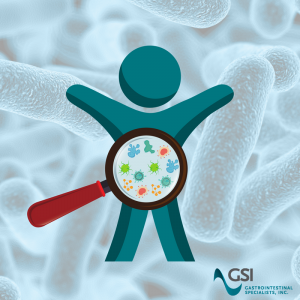News & Events
What to Know about Taking Probiotics
What to Know about Taking Probiotics
Probiotics are becoming popular thanks to research that has come out in the past couple  of years. From helping boost the immune system, to easing allergy symptoms and of course, improving the health of the GI tract, probiotics have many benefits to the body. We get lots of questions about taking probiotics so we decided to ask Nurse Practitioner Elizabeth Bowers a few questions about the benefits of probiotics and how you can safely take them at home.
of years. From helping boost the immune system, to easing allergy symptoms and of course, improving the health of the GI tract, probiotics have many benefits to the body. We get lots of questions about taking probiotics so we decided to ask Nurse Practitioner Elizabeth Bowers a few questions about the benefits of probiotics and how you can safely take them at home.
What is the best approach to choosing a probiotic?
There are many different types of bacteria that can be beneficial and each one has its claim to fame. A big hindrance is the cost. They can range from $5 to $75. Some are readily available on the pharmacy shelf and some are kept in the refrigerator behind the counter. The most common bacteria found in probiotics are Lactobacillus (which is what the L. stands for in abbreviations), Acidophillus, and Bifidobacteria. Some over the counter probiotics will have one strain and some will contain many. The more the merrier.
Probiotics are also found naturally in fermented foods such as yogurt, kefir, kimchi, kombucha, etc. You can always start with incorporating fermented foods into your diet and if that doesn’t work then add in a pill form.
What are some of the benefits of taking them daily?
Probiotics should be taken daily as they do not last for very long. The gut is a moving organ and as things move through the digestive system, the ingested probiotic moves along with it.
What are some reasons you should start considering a probiotic?
Probiotics are great for digestive health but should also be taken for the following things:
- To prevent diarrhea while on antibiotics
- Bloating and irregular bowels
- Chronic diarrhea
- Bowel health
What are some best practices for taking them?
You can take them daily for symptom prevention and health. You can also take along with an antibiotic to prevent antibiotic associated diarrhea.
The gut microbiome is still a pretty mysterious area but probiotics have shown to help improve your microbiome by helping to increase the amount of good bacteria in your gut. There is a growing body of scientific evidence that suggests that you can treat and prevent some illnesses probiotics.